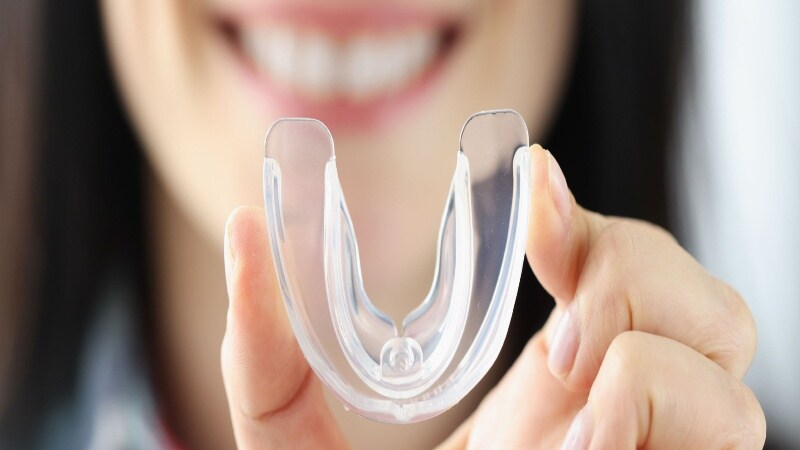
As a parent, you know the importance of oral health and wellness to keep your toddlers healthy as they grow. This includes protecting their teeth and other soft tissues from injuries and trauma, especially during sports. Of all the sports-related injuries that occur, 20% involve dental injuries (1). Toddlers are prone to injuries since they are hyperactive and always on the go. Furthermore, many parents choose to keep their toddlers involved in some kind of sports right from a young age. Sports can put them at an increased risk of dental injuries. Also, some toddlers may develop a habit of teeth grinding (often as a sign of coping with stress).
Mouthguards are effective dental appliances that help protect the teeth and gums in toddlers from any kind of injury or damage to the teeth due to excess teeth grinding (2). This article will explore in-depth about mouthguards, when they are needed, and their potential benefits. So read on!
What is a Mouthguard?
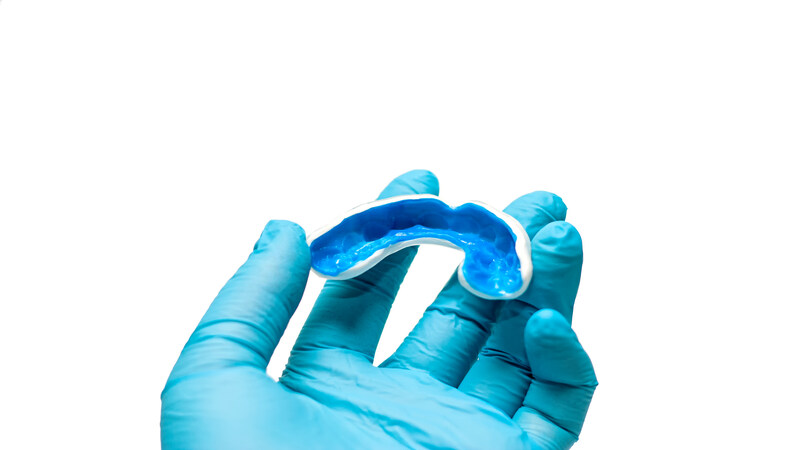
A mouthguard, also known as a mouth protector, is a customized dental device made up of a flexible material, worn over teeth during athletic activities to protect them from damage. They provide a cushioning effect to the teeth and soft tissues from being damaged due to orthodontic devices, and other appliances from physical contact and blows. Mouthguards are effective barrier-like devices placed between the teeth, cheek, and other soft tissues like lips and tongue to help reduce the risk of soft tissue damage (3).
When is it Required?
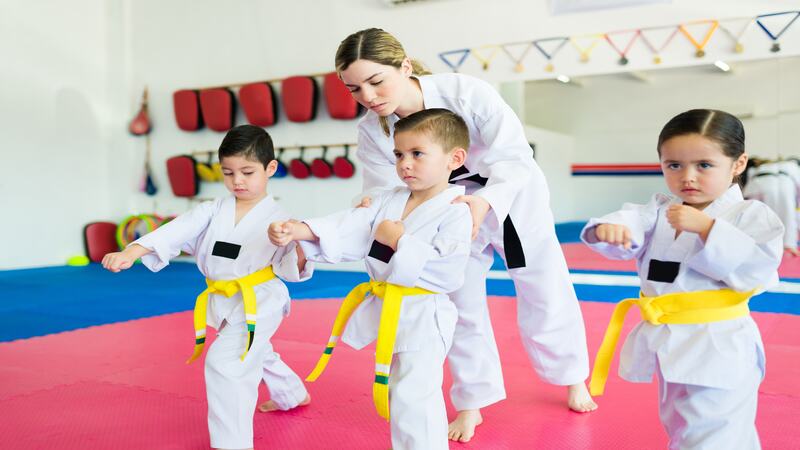
A mouthguard may be required during the following activities:
1. During Sports or Physical Activities
High-intensity physical activities like skating, or martial arts, can increase the risk of dental injuries that can be prevented by wearing a mouthguard (4).
2. If Suffering From Bruxism
Bruxism is a dental condition characterized by involuntary clenching of the jaw or grinding of the teeth. You may need to wear mouthguards (preferably a nightguard) to prevent damage to the teeth (5).
3. During Sleep Disorders
Sleep disorders like sleep apnea can negatively impact oral health. Though these disorders are uncommon in toddlers, can lead to mouth breathing and dry mouth. This may increase the risk of tooth decay and gum disease. Mouthguards can help alleviate these discomforts (6).
4. If One Has History of Dental Injuries
If someone has a history of frequent dental injuries due to weakened enamel, dentist may recommend them to wear mouthguards.
Benefits of Mouthguard For Kids
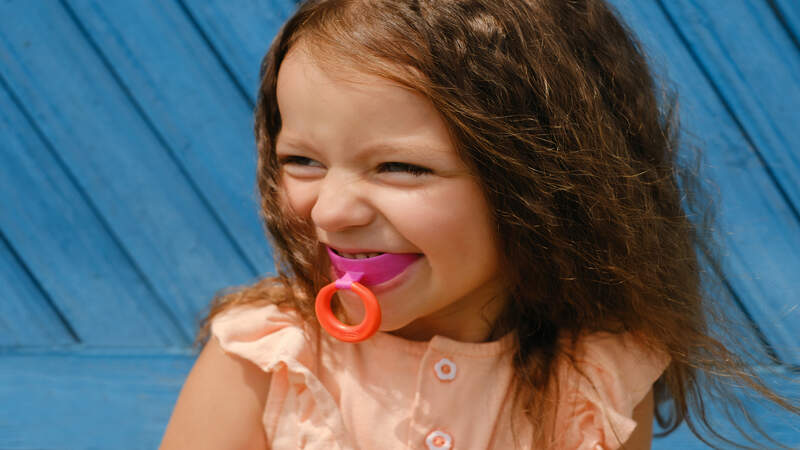
Mouthguards are effective appliances that offer several potential benefits for your kid’s dental health and overall well-being. Here is a list of some key benefits of mouthguards for kids:
1. Prevents Dental Injuries
Mouthguards can successfully protect your toddler’s teeth, gums, and mouth from injuries during physical activities. Pain and teeth sensitivity due to bruxism can also be managed through mouthguards.
2. Improves Quality of Sleep
Mouthguards can help alleviate the pain and discomfort caused by bruxism and help your toddler sleep more comfortably and peacefully.
3. Reduces Headache And Jaw Pain
Tension headaches caused by repeated teeth grinding and jaw clenching can be successfully reduced using mouthguards.
4. Are Custom-made
Mouthguards are customizable appliances that can successfully fit your child’s mouth shape. This provides maximum protection and comfort.
5. Easy to Wear And Maintain
Mouthguards are easy to wear by your toddler and usually require only basic maintenance through cleaning and proper storage.
Can a Toddler Wear a Mouthguard?
Yes, like adults, toddlers can also wear a mouthguard especially if they are involved in high-contact sports like football, soccer, skating, or martial arts. Mouthguards can also benefit your toddler suffering from bruxism. However, consult a pediatric dentist to help determine if mouthguards are the right choice for your toddler’s individual oral needs (7).
When Does a Toddler Need a Mouthguard?
Just like adults, toddlers are recommended to use mouthguards if they are involved in high-impact sports like skating, martial arts, or football. A mouthguard is also needed if your toddler suffers from bruxism and sleep disorders.
Disadvantages of Mouthguard
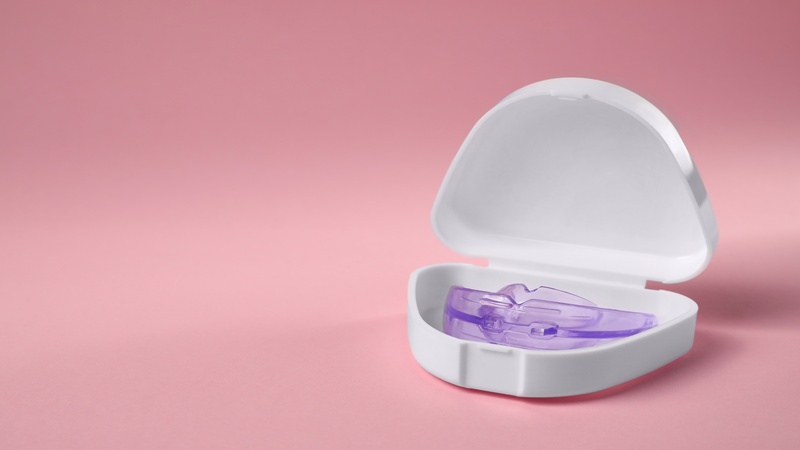
Although mouthguards offer numerous benefits, there are some potential disadvantages that you must be aware of:
- Discomfort– It can be uncomfortable to wear a mouthguard, especially during the first time. It may take some time to get adjusted to the appliance.
- Speech Difficulty– Mouthguards can make it difficult to speak clearly or properly, especially at first. This can be problematic for young toddlers who are still developing their speech skills.
- Mouth Irritation– Mouthguards can irritate your soft tissues like gums, causing soreness, especially if it doesn’t fit properly.
- Expensive– Customized mouthguards can be expensive, especially if they require frequent replacement due to wear and tear.
Consult a pediatric dentist if you think your toddler needs a mouthguard. These appliances may be required for several reasons such as during contact sports, or conditions like bruxism. Protecting your toddler’s tiny pearly whites is essential to safeguard the health of their permanent teeth in the future.
FAQ’s
1. Can Kids Sleep With a Mouthguard?
Generally, it is safe for kids to wear a mouthguard when sleeping. Such appliances are known as nightguards.
2. What is The Risk of Mouthguards?
If you fail to clean and sanitize the mouthguards you are at an increased risk of developing bacterial infection leading to tooth decay and gum disease. The bacteria may build up and destroy the tooth minerals and soft tissues.
3. How Many Hours Can a Child Wear a Mouthguard?
This depends on the reason for which you need a mouthguard. If you need one to protect the teeth during contact sports, then one should wear it only during practices and games. If one needs a mouthguard to treat teeth grinding, or sleep apnea, it can be worn every night while sleeping.
References
- Antipovienė A, Narbutaitė J, Virtanen JI. Traumatic Dental Injuries, Treatment, and Complications in Children and Adolescents: A Register-Based Study. Eur J Dent. 2021 Jul;15(3):557-562. doi: 10.1055/s-0041-1723066. Epub 2021 Feb 3. PMID: 33535246; PMCID: PMC8382465. – https://www.ncbi.nlm.nih.gov/pmc/articles/PMC8382465/
- Shore E, O’Connell AC. Assessment of mouthguards worn by Irish children playing contact sports: an observational cross-sectional cohort study. Eur Arch Paediatr Dent. 2023 Feb;24(1):125-132. doi: 10.1007/s40368-022-00763-1. Epub 2022 Nov 17. PMID: 36394781; PMCID: PMC9669524. – https://www.ncbi.nlm.nih.gov/pmc/articles/PMC9669524/
- Dhillon BS, Sood N, Sood N, Sah N, Arora D, Mahendra A. Guarding the precious smile: incidence and prevention of injury in sports: a review. J Int Oral Health. 2014 Jul;6(4):104-7. PMID: 25214744; PMCID: PMC4148563. – https://www.ncbi.nlm.nih.gov/pmc/articles/PMC4148563/
- Nowjack-Raymer RE, Gift HC. Use of mouthguards and headgear in organized sports by school-aged children. Public Health Rep. 1996 Jan-Feb;111(1):82-6. PMID: 8610199; PMCID: PMC1381748. – https://www.ncbi.nlm.nih.gov/pmc/articles/PMC1381748/
- Danielle Pacheco, Staff Writer, Dr. Anis Rehman, Internal Medicine Physician – https://www.sleepfoundation.org/bruxism/teeth-grinding-children
- Sutherland K, Vanderveken OM, Tsuda H, Marklund M, Gagnadoux F, Kushida CA, Cistulli PA. Oral appliance treatment for obstructive sleep apnea: an update. J Clin Sleep Med. 2014 Feb 15;10(2):215-27. doi: 10.5664/jcsm.3460. PMID: 24533007; PMCID: PMC3899326. – https://www.ncbi.nlm.nih.gov/pmc/articles/PMC3899326/
- Bastian NE, Heaton LJ, Capote RT, Wan Q, Riedy CA, Ramsay DS. Mouthguards during orthodontic treatment: Perspectives of orthodontists and a survey of orthodontic patients playing school-sponsored basketball and football. Am J Orthod Dentofacial Orthop. 2020 Apr;157(4):516-525.e2. doi: 10.1016/j.ajodo.2019.04.034. PMID: 32241358; PMCID: PMC7537672. – https://www.ncbi.nlm.nih.gov/pmc/articles/PMC7537672/
